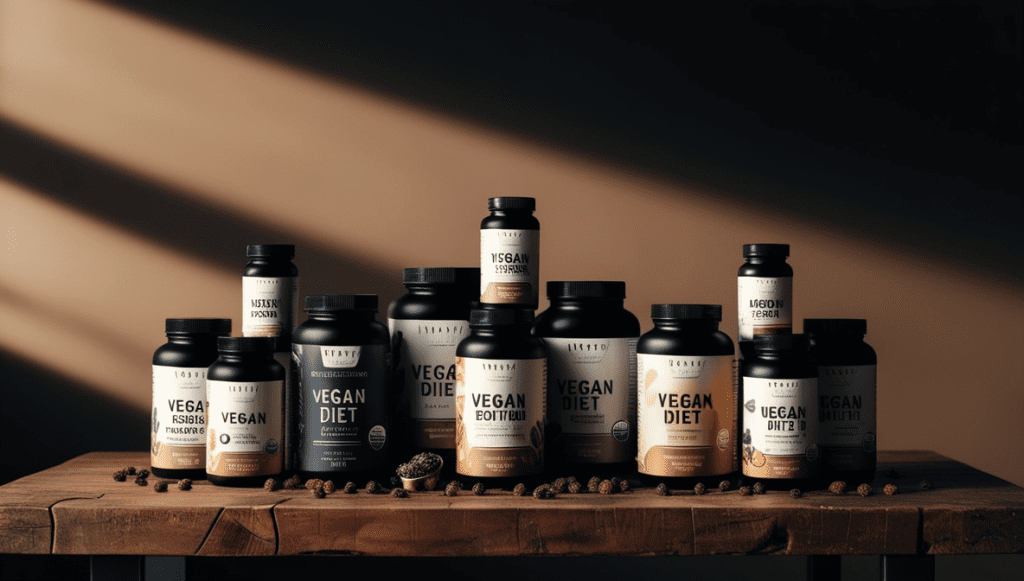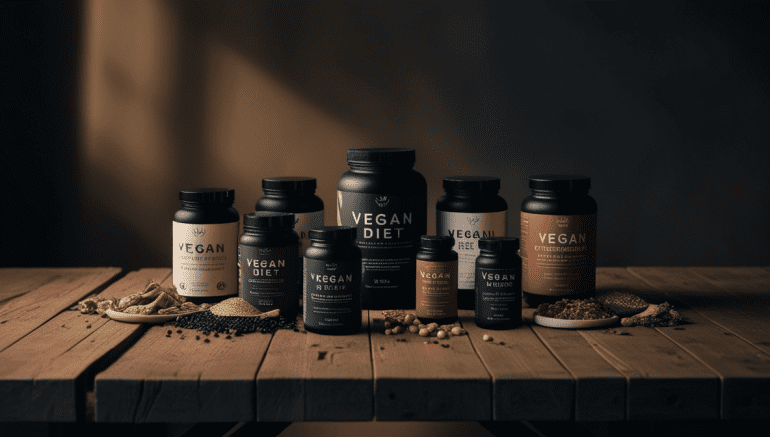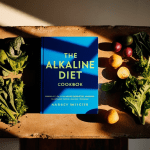While a well-planned vegan diet can provide most of the nutrients your body needs, certain vitamins and minerals may be harder to obtain from plant-based foods alone. That’s where vegan supplements come in—ensuring you get the proper nutrients to support overall health and well-being. Here’s a guide to some of the most important vegan diet supplements and why they may be necessary for your diet.
1. Vitamin B12
Why it’s important: Vitamin B12 is essential for nerve function, the production of red blood cells, and the synthesis of DNA. It’s typically found in animal products, so vegans must ensure they get enough B12 through fortified foods or supplements.
Best sources:
- Fortified plant-based milks, cereals, nutritional yeast, and meat substitutes
- Vegan B12 supplements (such as sublingual tablets or sprays)
Recommended dosage: Around 250-500 mcg daily, but it’s always best to consult with a healthcare provider for personalized advice.
2. Vitamin D
Why it’s important: Vitamin D plays a crucial role in calcium absorption, bone health, and immune system function. It can be difficult for vegans to get enough vitamin D from food alone, especially during the winter months or if they live in areas with limited sunlight.
Best sources:
- Fortified plant-based milks, juices, and cereals
- Mushrooms exposed to UV light
- Vitamin D2 (ergocalciferol) or vegan D3 (cholecalciferol) supplements derived from lichen
Recommended dosage: 600-800 IU daily, though some people may require more based on individual needs and geographic location.
3. Omega-3 Fatty Acids (EPA and DHA)
Why it’s important: Omega-3s are vital for heart health, brain function, and reducing inflammation. While alpha-linolenic acid (ALA) is found in plant foods like flaxseeds and walnuts, the body must convert ALA into EPA and DHA, which can be inefficient, particularly for those with certain health conditions.
Best sources:
- Flaxseeds, chia seeds, walnuts, and hemp seeds (ALA form)
- Algal oil supplements (EPA and DHA form)
Recommended dosage: Around 250-500 mg of combined EPA and DHA daily. Algal oil supplements are a reliable vegan source.
4. Iron
Why it’s important: Iron is essential for the transport of oxygen in the blood and overall energy levels. Plant-based iron (non-heme iron) is not absorbed as efficiently as the iron found in animal products (heme iron), so vegans need to pay attention to their iron intake.
Best sources:
- Lentils, chickpeas, tofu, quinoa, fortified cereals, spinach, and pumpkin seeds
- Iron supplements (in cases of deficiency or for those at higher risk)
Recommended dosage: 8-18 mg daily for adults, depending on age, gender, and individual needs. If taking an iron supplement, consider taking it with vitamin C to enhance absorption.
5. Calcium
Why it’s important: Calcium is vital for bone health, muscle function, and nerve signaling. While calcium is abundant in dairy products, there are plenty of plant-based sources available, though some individuals may still need supplements.
Best sources:
- Fortified plant-based milks, tofu, almonds, tahini, kale, and broccoli
- Calcium supplements, especially if bone density is a concern
Recommended dosage: 1,000 mg per day for adults under 50; 1,200 mg for adults 50+.
6. Zinc
Why it’s important: Zinc is involved in immune function, wound healing, protein synthesis, and DNA synthesis. Like iron, the bioavailability of zinc from plant sources is lower than from animal products, making supplementation beneficial for some vegans.
Best sources:
- Legumes, seeds, nuts, whole grains, tofu, and fortified cereals
- Zinc supplements (if needed)
Recommended dosage: 8-11 mg daily for adults, depending on age and gender.
7. Iodine
Why it’s important: Iodine is essential for thyroid function and the production of thyroid hormones. Since iodine is found primarily in seafood and dairy, vegans may need to ensure they are getting enough, especially if they avoid iodized salt.
Best sources:
- Seaweed (nori, wakame, kelp)
- Iodized salt or iodine supplements (if needed)
Recommended dosage: 150 mcg daily, but excess iodine can be harmful, so moderation is key.
8. Protein
Why it’s important: Protein is essential for muscle repair, immune function, and enzyme production. While a vegan diet can provide ample protein from plant-based sources, some individuals may need a bit more to meet their daily requirements.
Best sources:
- Legumes, lentils, chickpeas, tofu, tempeh, quinoa, hemp seeds, chia seeds, and edamame
- Plant-based protein powders (such as pea, rice, or hemp protein)
Recommended dosage: The recommended daily intake for protein varies, but most adults need about 0.8 grams of protein per kilogram of body weight. Active individuals or those with higher protein needs may require more.
9. Vitamin K2
Why it’s important: Vitamin K2 plays a role in bone health by helping regulate calcium in the body. It can be difficult to obtain enough vitamin K2 from plant-based foods, so supplementation may be necessary, especially for bone health.
Best sources:
- Fermented foods like natto (fermented soybeans)
- Vitamin K2 supplements (MK-7 form derived from fermented chickpeas or other plant-based sources)
Recommended dosage: 90-120 mcg daily, but consult with a healthcare provider for personalized advice.

While a vegan diet can provide a wide array of nutrients, it’s essential to pay special attention to certain vitamins and minerals that are more difficult to obtain from plant-based sources alone. Supplements can help fill in the gaps and ensure you’re meeting your nutritional needs. Always consult a healthcare professional or registered dietitian before adding new supplements to your routine, as individual needs vary. By supplementing thoughtfully, you can enjoy the many health benefits of a plant-based diet while maintaining a balanced and nourishing lifestyle.










